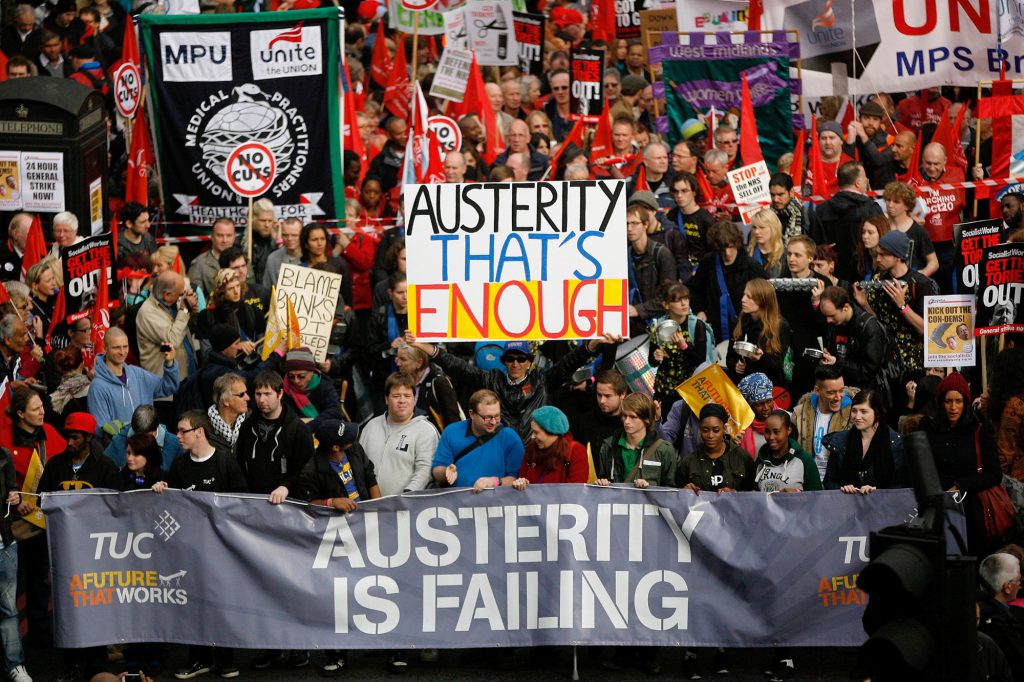Before his untimely death, Walter Rodney wrote a ground-breaking anti-imperialist classic entitled How Europe Underdeveloped Africa. In the book, he made the observation that in real terms, the word “developing” is a synonym for underdeveloped. He went on to say that European colonialists deliberately caused the underdevelopment of Africa through a combination of a highly centralized power structure that oppressed some social groups and exalted others, and the systemic extraction of economic resources.
Amidst the clarion calls signalling impending doom for CARICOM economies, one cannot help but look inward at the endogenous factors that have contributed to the current economic environment in an effort to refocus Rodney’s ground-breaking thesis. The question to be answered in this iteration of Rodney’s notion is this: how did the Caribbean under-develop itself?
Assuming that exogenous pressures are a given for any developing country, the article will focus on 10 endogenous factors that contribute to underdevelopment in CARICOM.
Governance without vision
To argue from a historical perspective, it can be said that since the independence era, there have been few visionary leaders who have been able to translate their ideas into long-term, progressive policies. In many cases, they have advanced political ideas that aim to achieve a goal while remaining wilfully ignorant of the fact that the implementation of these ideas would frustrate that very goal. In light of the previous statement, Guido Pincione and Fernando Teson argue that political morality and posturing are contributing factors to the rational ignorance of the Caribbean political directorate. This is prevalent across CARICOM countries, and is evident in the collective and individual decisions that have been taken at the domestic, sub-regional and regional levels. While political ideologies have tended to vary widely within the region, Caribbean economies remain afflicted with common issues.
At this current juncture in the development process, we can safely say that there has been no progressive long-term vision for Caribbean economies. If there is doubt as to the empirical basis for this argument, simply Google “*any Caribbean country or regional organization* 20 year vision”. While the goals may be explicitly stated, the policy roadmap is such that there is no unified country strategy for development that will be followed with diligence by all who hold positions of political power. In light of this lack of vision, policies are not decided upon with an overarching goal in mind. Rather, a series of disjointed and party-specific policies are employed, often with no established monitoring and evaluation framework to evaluate their success or failure. The result? Reactionary governance structures that are struggling to rectify bad decisions in hindsight rather than planning for future development, and either creating new problems or exacerbating existing ones.*
Instead, governments should create individual short and long-term development visions, and form coalitions based on mutual interest. This should introduce new regional, sub-regional and domestic dynamics that may be better suited to progressive policy planning and development.
*The government’s decision to withdraw the free education scheme in Barbados is a typical example of trying to solve a problem in hindsight and creating a new one.
Poor labour planning
It has been argued since Sir Arthur Lewis’ dual sector model that the East Asian model would not work for CARICOM. However, employing the “baby with the bathwater” cliché, the foundations of the Singaporean model are still relevant. The country’s vision for economic development began with an understanding that an educated and skilled labour force would play a crucial role in all economic sectors. Technical and vocational education (TVET) was prioritized as a core component of the national education and training system, which reduced the need for external labour in structural development, increased the productive capacity of the society and greatly increased employment across sectors.
Labour planning in CARICOM is treated differently for a number of reasons. Primarily, TVET is demonized as a lower form of education, limited to menial labour such as carpentry and plumbing. Consequently, there is a very large number of persons qualified in non-contributory fields who are either unable to find employment or are unsuitable for the work they are hired to do. This is especially true with the younger demographic. An example can be found from the University of the West Indies St. Augustine Campus’ student statistics for 2012. By the numbers, 489 students were pursuing degrees in Management Studies, 260 in Sociology, and a whopping 503 were undeclared or considered “general”. Conversely, only 105 pursued degrees in Public Sector Management, and 91 in Agribusiness.
To solve the issue of poor labour planning, it is necessary to go back to the vision plan, as the development of human resources is a core component of the development vision of any country. If governments can create clear, achievable goals and train the citizenry to fill the labour gaps, employment and productivity would increase significantly. Manpower surveys need to be conducted, and priority lists for study must be adjusted to suit the development needs of CARICOM countries.
Fractured Education System
In the Caribbean, particularly in the OECS, the education system churns out a celebrated academic minority and a “low-skilled” majority (whose talents are more than likely linked to TVET). The curriculum is such that academic subjects are the focus of instruction, with only a few schools offering courses in electrical engineering, auto mechanics and other technical subjects. The performance-based Common Entrance secondary school placement system groups sluggish academic performers together and denies them an opportunity to either develop through technical education or learn through “scaffolding” from colleagues who grasp academic concepts more quickly.
To place this reality in a historical context, one can reflect on the fact that primary and secondary education was traditionally geared toward preparing white-collar workers for clerical and administrative jobs in the colonial civil service. The continuation of this practice has stifled any potential focus on industrialization and the development of a strong manufacturing sector. While this can be blamed on the colonial concept of respect for scholars and disdain for carpenters and mechanics, the perpetuation of negative associations between low education and manual work is foolish and has no place in a modern development context.
It cannot be stressed enough that economic growth depends heavily on the extent to which there is investment in primary and secondary education, more so than in higher learning. Nelson and Phelps put it perfectly: investment in lower education creates a more educated labour force at all levels of society, which promotes innovation and the imitation of frontier technology.
Traditional trading, commerce and services cannot provide sufficient jobs for the number of school leavers. To address this and the previous labour issue, the universal instruction of TVET can support the development of a strong labour sector.
Facilitate brain drain
According to this article, one in ten tertiary-educated adults born in the developing world (almost half of the developing world’s science and technology personnel), now live in developed countries. The reality is no different in CARICOM. Keith Nurse and Jessica Jones have argued that between 1990 and 2000, more than 65% of CARICOM nationals with tertiary education migrated to OECD (read developed) countries, with some individual countries having emigration rates of over 70%.
Nurse and Jones blame the economic, educational and occupational opportunities in the North for brain drain, which is indisputable. If domestic socioeconomic conditions are unattractive or unconducive, highly skilled academic or technical workers will divert their expertise to the regional or international market. However, an issue of equal importance is the perception, and often the reality, that domestic politics influences job prospects. If the popular opinion is that professionals are hired based on partisanship rather than qualifications and merit, there is a high probability of labour flight.
The practice of professional grooming needs to become a prominent feature of the career process. By creating a professional and personal bond between the aging technocratic corps and the young understudies, there is an assurance that the knowledge amassed by senior statesmen is retained and that there is a more fluid transition from one generation of professionals to another. If mentorship programmes can be introduced as part of the secondary or post-secondary curriculum, there is room to shape the future labour force.
Another practice that can mitigate against brain drain and change the negative perception of working at home is the adoption of a culture of rewarding. By clearly defining staff roles and maintaining a reward system for professional achievements, there is room to change how upcoming young professionals see the labour market in their respective countries.
Engaging in serial monocropism
As has been argued in our post on the resurgence of the IMF in the region, Caribbean countries have a penchant for flirting with unsustainable industries. To quickly reiterate, primary agricultural production, financial services (read “tax havens” in a heavy American bureaucratic tone) and tourism are neither sustainable nor reliable industries in the context of economic development.
The function of these sectors should be to develop domestic capacity. The tourism industry should have been an open market for foreign consumption of domestic produce. Instead, it has become a standalone economic staple which, when one considers domestic consumption figures in the public and private sector, is a false positive. This is to say that if we look at the amount of local goods and services that we consume at home versus the amount of local goods and services that tourists consume and where that money goes, there is no real economic gain from tourism.
Agriculture is a sustainable industry if there is product diversification, and if the primary products are processed for export rather than sold as commodities. The history of agriculture in the region has been ultra-specialization in low-return production without any scope for product diversification and expansion. Our position in the path of vicious natural disasters has also proved to be a major inhibitor.
With one sector drawing its dying breaths and the other under threat due to rising fuel prices and attractive alternative destinations, it would be interesting to see the regional response.
Drive away consistent Foreign Direct Investment (FDI)
A penchant for the mismanagement of donor funding in developing countries has significantly lowered non-conditional donor interest. Coupled with high levels of crime, low productivity and relatively high cost of labour and high levels of corruption, the attractiveness of our economies except as consumption-based capital extraction markets for foreign companies is nil. Countries courting foreign investment have consequently had to offer overly gratuitous benefits in order to attract and keep investment.
If FDI is conceptualized as direct investment from one individual or company into another or expansion of operations, FDI is concentrated in countries with high purchasing power and natural resources. Outside of CARICOM’s more developed countries (MDCs), the chances of maintaining investment are slim without considerable innovation.
No economic diplomacy in foreign policy to complement domestic policy
The focal point of Caribbean foreign policy since independence has been access to special and differential treatment from developed country trading partners. While this is a necessary step in the development of the region’s trade capacity, it has been achieved in a vacuum that has not supported any true expansion of trade. While some developing countries have flourished in the pursuit of foreign economic opportunities, CARICOM is still strugging. Kishan Rana has argued that severe inadequacy of resources, internal conflict and poor governance are the root cause of the issue, but CARICOM does not fit any of those characteristics well enough to claim them.
Rana describes economic diplomacy as the process through which countries maximize their national gain through trade, investment and other forms of economically beneficial exchanges in which there is comparative advantage, whether bilaterally, regionally or multilaterally. Proactive foreign policy must be seen as a complement to domestic policy and a core component of development, and economic diplomacy must be at the forefront of foreign policy. The foreign policy agenda of CARICOM must therefore be shifted from special and differential treatment to aggressive expansion in lucrative trade in key goods and services. Any trade agreements and negotiations must satisfy domestic policy goals and take into consideration the external negotiating environment.
Domestic and regional enterprises must be expanded into larger markets, and FDI assistance must be given to that end. Regulatory bodies must be established in order to maintain high levels of quality and facilitate the advancement of trade in priority areas through trade agreements, transport agreements, and investment accords. If CARICOM can turn its foreign policy focus from outside assistance to aggressive trade expansion, there is room for real growth in the region.
Lax agricultural policy
In order to shift the focus from aid to expansion, agriculture must be given priority. It cannot be stressed enough that any long-term development plan for small economies should begin with an understanding of the role of agriculture in the development process. Slavery supplied the labour for the engine that built the industrial countries in the north: agriculture. Most small economies have an abundance of low-skilled labour that could be used in the resuscitation of the agricultural sector (while new capacity is being built through investment in primary and secondary education). Agriculture must form an integral part of the base upon which the economy is built; it must filter into manufacturing, services, and the knowledge economy.
To that end, the lack of coherent, long-term national agricultural policy is a dangerous oversight, especially given the nature of international trade. Such a policy should include the development of a market research unit whose function is to find countries to trade with, and a quality control unit that ensures that goods are produced with regularity and achieve a high quality standard. Export subsidies should be used to divert these quality products to the regional and international markets, and cheap substitutes should be imported for consumption. In a less aggressive model, surplus production could be diverted to the international market.
Encouragement and perpetuation of ignorance
This step is a social and psychological phenomenon in many former colonies whose political landscapes are characterised by strong bipartisanship, low education and a visibly polarized and self-censored media. While two party political systems are prevalent in global politics, bipartisanship is particularly damaging in countries where education is lacking, for two main reasons. First, the citizenry is less likely to be motivated to form civil society organizations that will either monitor or lobby the government. Coupled with a self-censored media, politicians are afforded the freedom to engage in duplicitous behaviour without fear of serious backlash. Second, there is no real interest in the political affairs of the country beyond social debate over political morality. Policy decisions that are contrary to the development vision (or lack thereof) are not questioned in a manner that demands an immediate political response. Due to the polarization of the political system, there is a large enough core following that will support political decisions regardless of their socio-economic consequences.
Politicians in these conditions tend to encourage such ignorance, and use it for personal gain. An example of this is the Vincentian referendum on severing ties with Britain and becoming a Republic. The opposition used propaganda to defeat the referendum, allegedly out of fear that a favourable outcome would mean more support for the incumbent. One particularly absurd piece of propaganda was that if St. Vincent became a Republic, the incumbent would have dictatorial powers, and would replace the Queen’s face with his own on the currency. This, of course, would have been quite difficult given that St. Vincent shares a currency with the Member States of the OECS, and Dominica, as a republic maintains, the same currency.
Crab-in-a-barrel competition
Due to the lack of economic diversity among Caribbean countries, there is significant infighting to push individual competitors to the fore as the premier tourist destination or the most secure offshore financial centre. Instead of collective marketing strategies that bring investment to the region, there is significant fragmentation which filters into the often combative political superstructure. This issue is another that can be resolved through the use of a long-term regional vision plan that will see individual countries specialize in non-competing products and services while strengthening coalitions in pursuit of a common goal: achieving sustainable social and economic development.
*Fixation on backlash from the North
With very little exception, the fear of victimization by Northern countries (especially the United States) is a serious consideration in the decision-making process in CARICOM. While domestic policies must not be structured to deliberately undermine diplomatic relations with strategic partners, decisions affecting the economic and social sustainability of a country should not be fettered by fear of external perception. Aid given to Caribbean countries is not a substitute for functional trade and diplomatic partnerships with other developing or developed countries.
This is by no means an exhaustive list of contributing factors to chronic underdevelopment in CARICOM or any other region. However, discourse on strategies to overcoming these factors is a significant step in the right direction.
_____
*Special consideration is given here because of the history of the US in the Caribbean, and the country’s considerable sway in the international arena.








Miguèl
Este texto ,es una pura realidad de lo que esta pasando en el caribe,sobretodo en mi país Haití. Espero que este se usa como una guía para corregir lo que debe corregir,y agregar ,a lo que faltaba.
Jon Dujon
La situación en Haití es desgarradora. Esperamos que nuestras ideas serán utilizados por los gobiernos para resolver los problemas de Haití y el resto del Caribe. Gracias por tus comentarios.
Ralph Birkhoff
Excellent article Daryl.
Unfortunately its too easy to highlight these reasons for underdevelopment and too difficult to change them. We don’t even have the luxury of having to identify the problems, they are all out there lying on the table, and everyone is fully aware of them! That is the saddest part of it all.
How, for instance, do you suggest that investors or policymakers work with governments that have that lack of vision, or with public sector representatives that are not willing to stick their political necks out to try and change how government works for the sake of economic development or other improvements?
There are too many conflicts of interest inherent in a typical government structure here, and so far we have yet to meet one senior minister who is prepared to risk their position (with all its benefits), for the sake of championing a new idea or positive economic policy shift through the political bureaucracy. They just aren’t going to ripple any waters, even if the idea makes all the sense in the world. This goes directly to your ‘crabs in a bucket’ issue.
Due to the lack of public sector transparency in general, it is often impossible to understand the processes that investors are required to endure. RFPs get issued, proposals are sent in – but nothing happens. No response, and no reason given for no response. Why? These proposals are being reviewed and evaluated by a) someone who’s own position may be threatened by the proposal concept itself, b) they don’t really understand the solution being proposed and don’ want to admit that to anyone, or c) the original request was issued strictly for political purposes and no real action was contemplated from the outset (ie ‘we just want to look busy’…). I am not making these up.
And so no progress occurs.
All of your ‘Steps’ are completely valid, but until we find a way to eliminate the selfish and self-important attitude of public sector officials within government structure in CARICOM, none of the other challenges can or will be addressed effectively. This may not happen until an organization with the power of say, the IMF, truly begins leveraging their regional financial assistance against a measurable national action plan. Jamaica seems to understand this and is trying their best to adapt, and it’s beginning to show positive signs.
Hopefully your work to continually expose these issues will help and I applaud you, but the underlying social, cultural, and political challenges that have taken decades to establish themselves, may be too difficult to change in one lifetime.